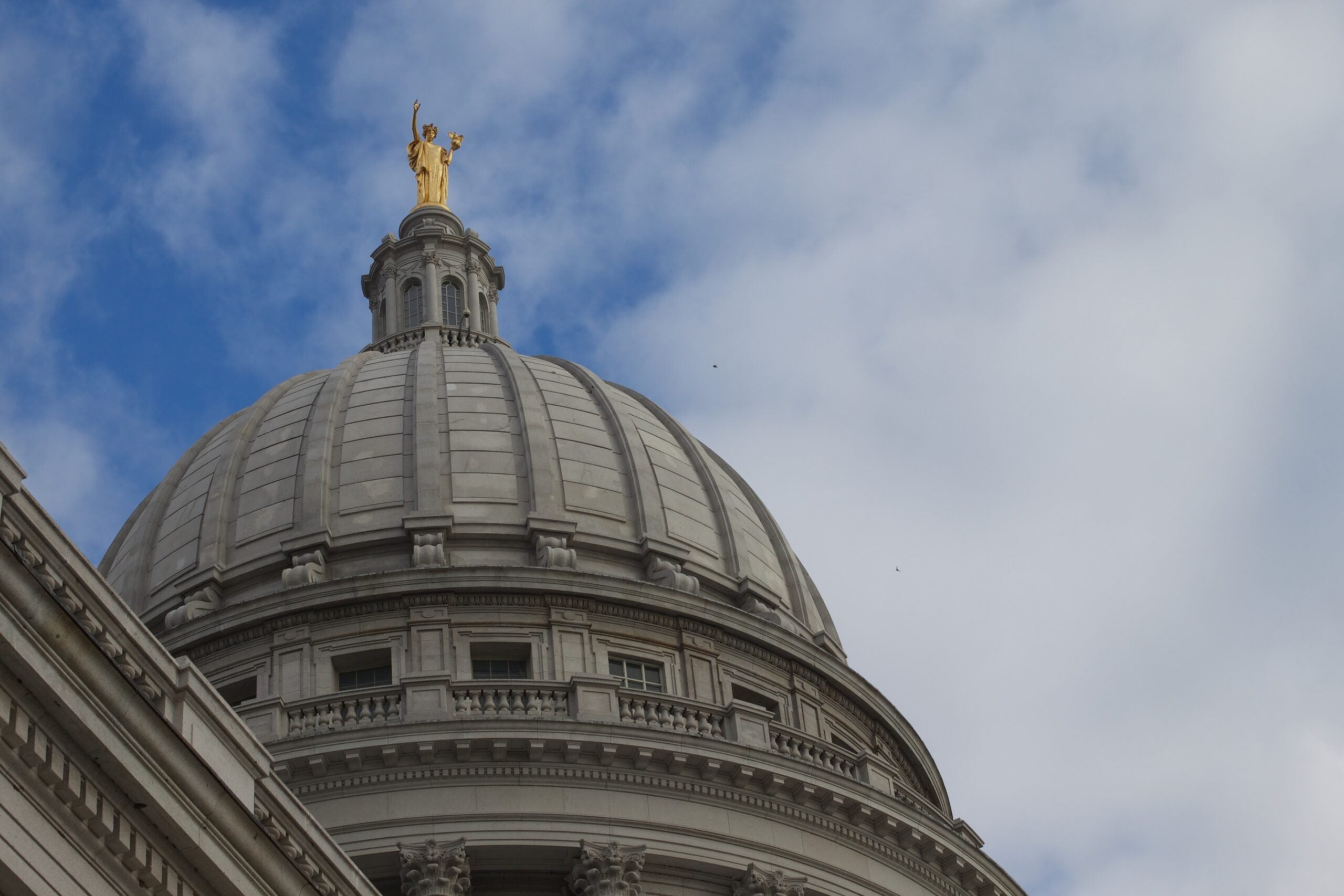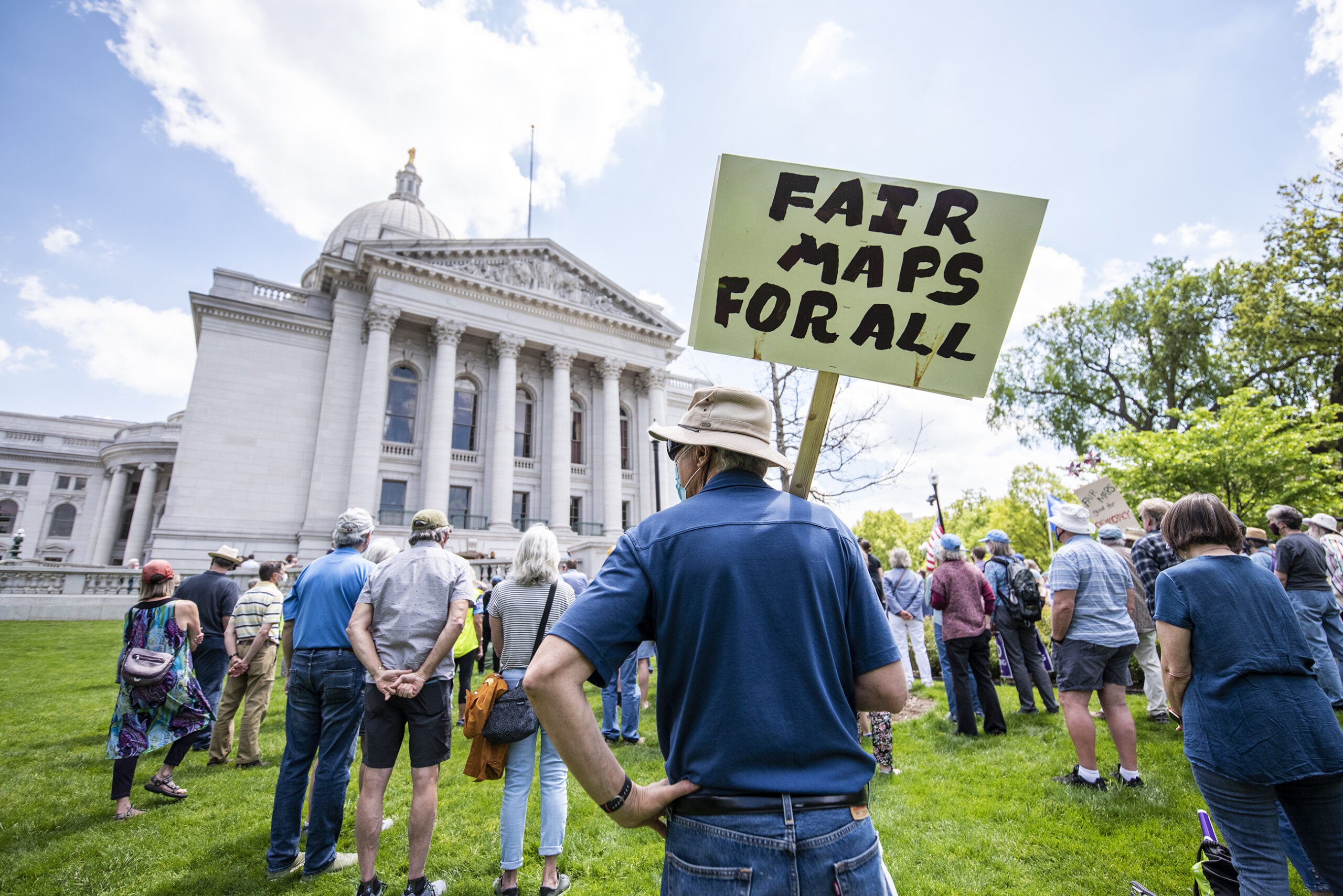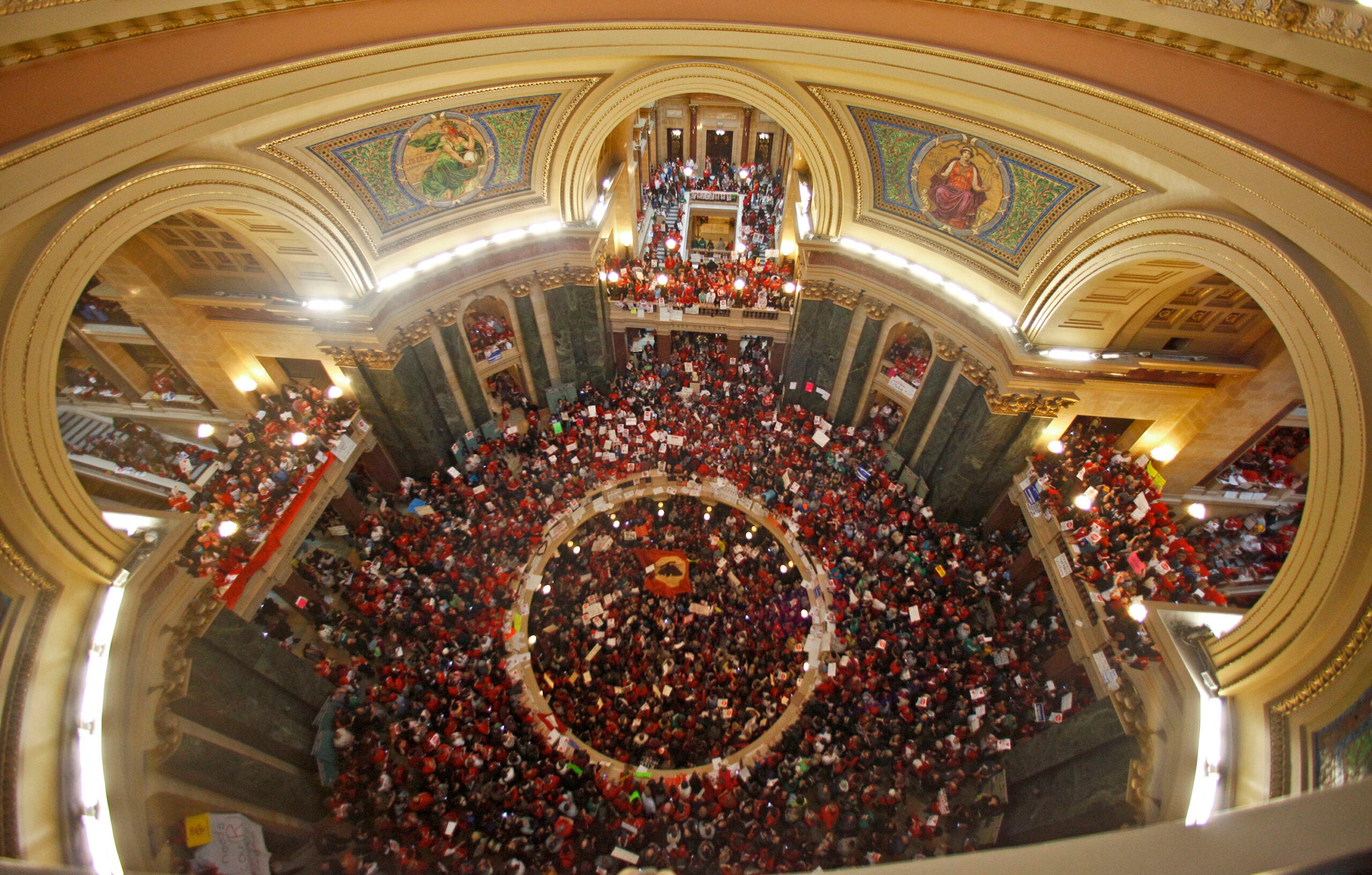Wisconsin Democrats are pinning their hopes for redistricting changes in Wisconsin on a proposal in the state Legislature.
Following a ruling on partisan gerrymandering from the U.S. Supreme Court last month, advocates for changing how legislative maps are drawn in Wisconsin say the courts are out of the picture and a change to state law is their only hope.
“I’m afraid that’s the case,” said state Sen. Dave Hansen, D-Green Bay, who is sponsoring a redistricting bill in the Senate.
News with a little more humanity
WPR’s “Wisconsin Today” newsletter keeps you connected to the state you love without feeling overwhelmed. No paywall. No agenda. No corporate filter.
Hansen first introduced a proposal in 2012 that would create a nonpartisan redistricting commission in Wisconsin. The proposal came on the heels of Republicans taking control of the Legislature in 2011 and drawing new legislative district maps that have drawn ire and legal challenges from Democrats.
Under Hansen’s proposal, the nonpartisan Legislative Reference Bureau would draw the maps, overseen by a five-member advisory commission appointed by party leaders. The commission would be required to hold public hearings on the maps, which would also need the approval of the Legislature.
The plan is based on the so-called “Iowa model” of redistricting, which was adopted by the state of Iowa in 1980.
Hansen cites the close race between former Gov. Scott Walker and Gov. Tony Evers, who won by less than a 2-percent margin, as proof that Wisconsin’s legislative chambers should be more evenly split along party lines. Republicans hold a 63-36 majority in the Assembly and 19-14 majority in the Senate.
“We are not that red, but (Republicans’) mathematical formula was incredible,” Hansen said.
The bill is sponsored in the Assembly by state Rep. Robyn Vining, D-Wauwatosa.
“The Wisconsin people have fairness in our bones,” Vining said via email. “We are people who care about balance, and we are people who grow quickly tired of partisan bickering.”
While no Republican lawmakers have signed on to the plan in the Senate, three Assembly Republicans have agreed to be co-sponsors: Reps. Todd Novak, R-Dodgeville; Travis Tranel, R-Cuba City; and Joel Kitchens, R-Sturgeon Bay.
“We can, and should, do this together,” Vining said. “I look forward to being in the company of more Republicans.”
Novak has been supportive of the proposal for years. Tranel and Kitchens are new additions to the roster of public support.
Hansen commended those lawmakers for “taking on” Republican party leadership.
“I think they were pressured in their districts, people were saying this isn’t fair, this isn’t right,” Hansen said. “We need more pressure on legislators to push for this.”
Thus far, the leaders of the GOP-controlled Legislature have declined to schedule public hearings on the bill.
Assembly Speaker Robin Vos, R-Rochester, and Senate Majority Leader Scott Fitzgerald, R-Juneau, didn’t respond to requests for comment.
Erin Grunze, executive director of the League of Women Voters of Wisconsin, said in failing to call public hearings on the plan, the leaders aren’t listening to the will of Wisconsin residents.
“We haven’t seen a lot from leadership in terms of wanting to embrace this, despite the overwhelming response by Wisconsin voters,” she said.
The League of Women Voters is part of the Wisconsin Fair Maps Coalition, a collection of groups that advocates for change to redistricting in Wisconsin.
Other members of the coalition include the American Civil Liberties Union, Wisconsin Democracy Campaign and Citizen Action of Wisconsin.
The group often points out the magnitude of public support for the issue. At least 46 of Wisconsin’s 72 county boards have passed resolutions calling for nonpartisan redistricting.
According to a January 2019 poll from Marquette University Law School, 72 percent of Wisconsinites support a nonpartisan commission helming the map-making process. Only 18 percent said the Legislature and governor should be in charge.
“The numbers that support this are incredible,” Hansen said. “For (Republicans) to ignore these statistics and polling that all these things should be happening … they’re ignoring them because they’ve been packed or cracked into districts that are safe.”
Evers has also said he will work to push the plan.
“I am going to fight, bring the fight for nonpartisan redistricting to this legislature,” Evers said at his state budget signing event last week. “We have a comfortable Republican majority who consolidated powers for themselves before I took office, leaving minimal accountability when they refuse to listen to the people of the state. They got to pick their voters and draw their district lines and, as a result, are able to ignore the overwhelming majority of Wisconsinites who supported the things we included in this budget.”
But without the support of more than a handful of GOP lawmakers, the plan is likely to languish in the early stages of the legislative process.
Grunze said proponents can’t be resigned to that fate.
“I think it’s easy to get discouraged right now, because there have been a lot of dings to what we want to see happening in terms of better government practices,” she said. “I just think there’s a hunger from people in Wisconsin who know the change now needs to happen.”
Editor’s Note: This story was updated to include comments from Rep. Robyn Vining.
Wisconsin Public Radio, © Copyright 2026, Board of Regents of the University of Wisconsin System and Wisconsin Educational Communications Board.







